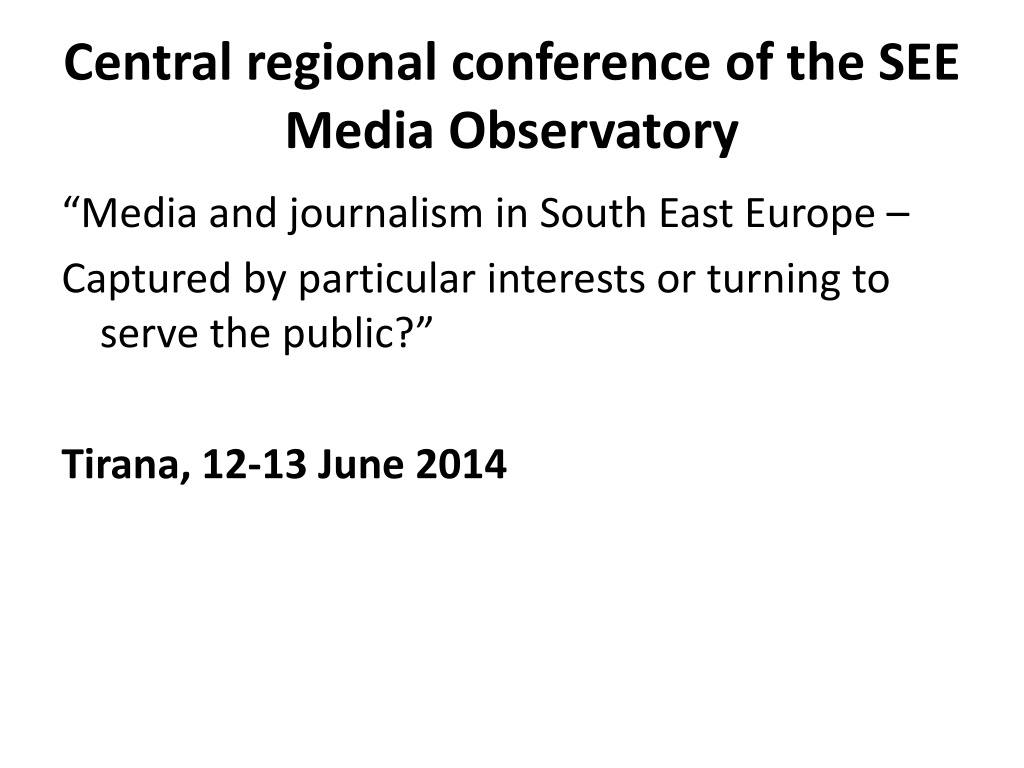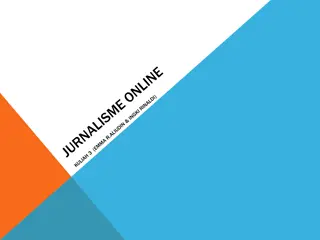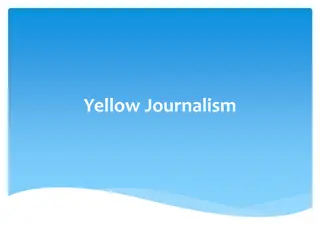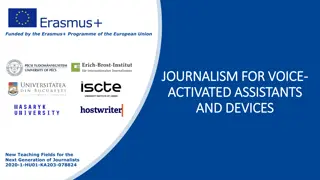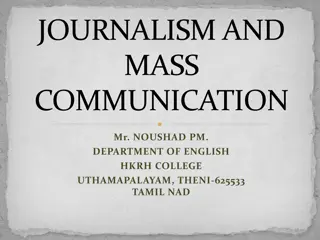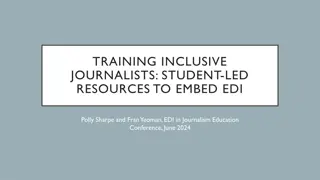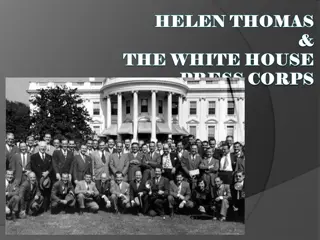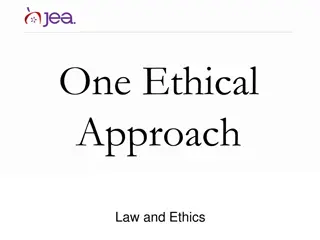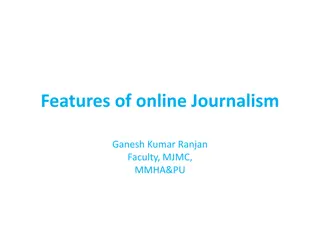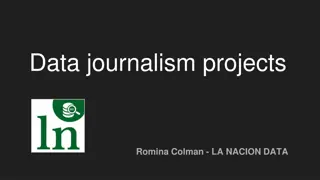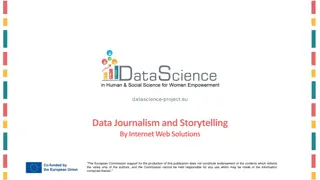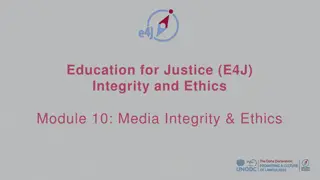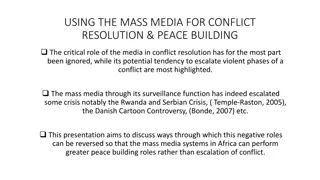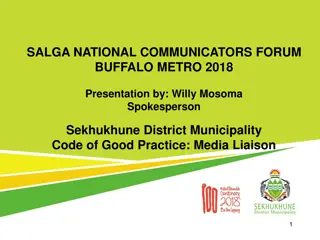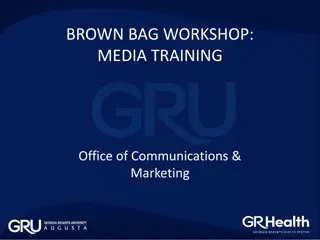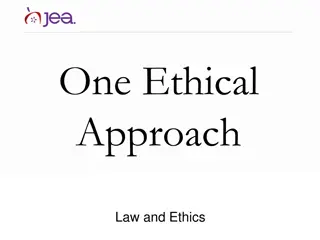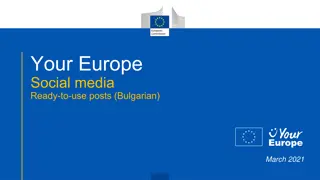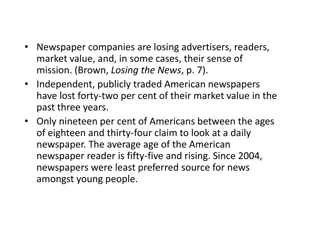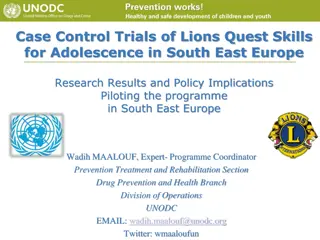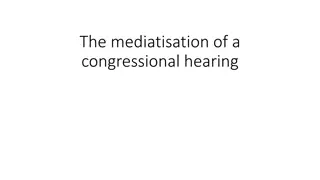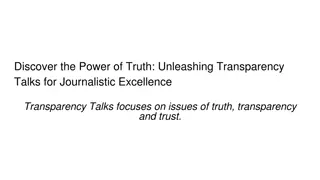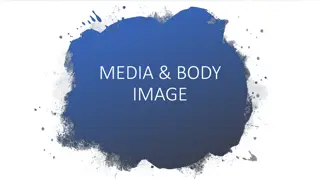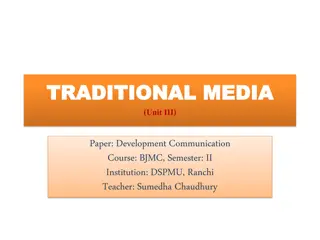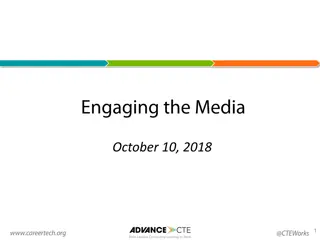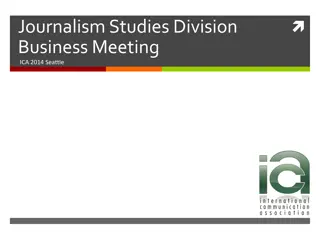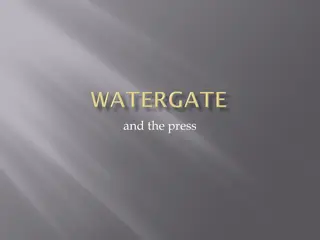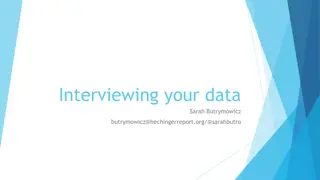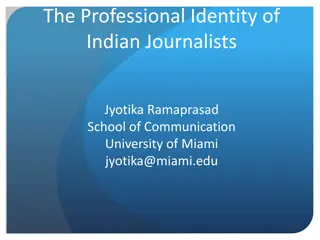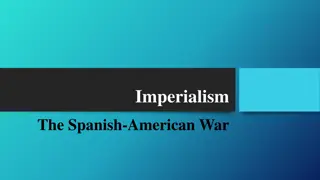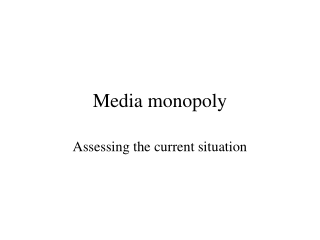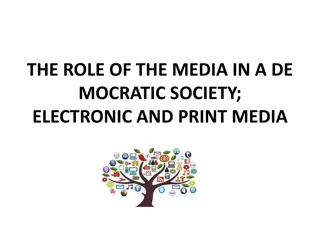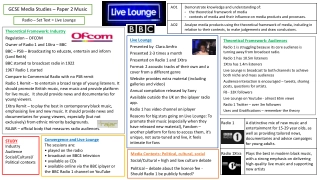Media and Journalism Challenges in South East Europe
The central regional conference of the SEE Media Observatory in Tirana addressed various pressing issues faced by journalists and media outlets in South East Europe. Topics discussed included the role of journalists in democratic processes, lack of trust in media, changing ownership dynamics, vulnerability to external influences, and government interference. The conference highlighted the challenges and obstacles affecting the independent functioning of the media industry in the region.
Download Presentation

Please find below an Image/Link to download the presentation.
The content on the website is provided AS IS for your information and personal use only. It may not be sold, licensed, or shared on other websites without obtaining consent from the author. Download presentation by click this link. If you encounter any issues during the download, it is possible that the publisher has removed the file from their server.
E N D
Presentation Transcript
Central regional conference of the SEE Media Observatory Media and journalism in South East Europe Captured by particular interests or turning to serve the public? Tirana, 12-13 June 2014
Session 5 Journalists - Victims or constituents of structures and relations which obstruct democratic role of the media? Presentation by speaker: Balazs Weyer, President, Hungarian Editors Forum, Budapest
Vulnerability and lack of trust all over the place Public Owners Journalists Advertisers Politics/regulators
The trust towards journalism is at historical low (since 1990) Public The expectations towards journalism are law Don t believe the media See it as a part of the establishment and the polarized political field is itself polarized, disillusioned or ignorant won t value the media won t pay for journalism
Owners with a transparent mission gradually replaced by oligarchs and other owners with shady motivations Owners Can t make much money any more so they use to support other kinds of businesses Ownership is growingly intransparent (strawmen) would do almost anything for revenues, more than before are vulnerable themselves have short term survival strategies
Are vulnerable themselves Advertisers Follow the government s advertising patterns Seek good terms with the government Want the chinese wall between advertising and editorial content been demolished Increasingly spend on non- journalistic media, like Facebook, Google, events, etc. would take advantage of media s vulnerability
Makes laws to make media more vulnerable both legally and financially Government/ regulator Becomes an ever more important advertiser distinguishes between friendly and non-friendly (meaning independent and really non- friendly) media Manages public media as own Puts pressure on independent and non-friendly media to withhold stories Uses advertising agencies and middlemen to send messages to newsrooms
Dont believe in themselves, arent proud to be one Journalists Are increasingly polarized Value opinion over facts, personality over media brands, speed over accuracy Don t organize themselves, no unions, no solidarity Lack job security Don t trust anyone, including each other Don t find their job rewarding Don t have a long term vision (defensive strategies) Are under all kinds of pressure
